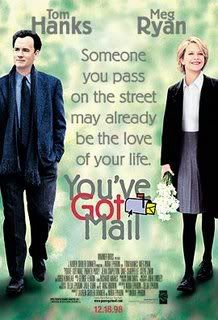


In a concise and direct question-and-answer format, C++ FAQs, Second Edition brings you the most efficient solutions to more than four hundred of the practical programming challenges you face every day.
Moderators of the on-line C++ FAQ at comp.lang.c++, Marshall Cline, Greg Lomow, and Mike Girou are familiar with C++' most pressing concerns. In this book, the authors concentrate on those issues most critical to the professional programmer's work, and they present more explanatory material and examples than is possible on-line. This book focuses on the effective use of C++, helping programmers avoid combining seemingly legal C++ constructs in incompatible ways.
This second edition is completely up-to-date with the final ANSI/ISO C++ Standard. It covers some of the smaller syntax changes, such as "mutable"; more significant changes, such as RTTI and namespaces; and such major innovations as the C++ Standard Library, including the STL. In addition, this book discusses technologies such as Java, CORBA, COM/COM+, and ActiveX--and the relationship all of these have with C++. These new features and technologies are iconed to help you quickly find what is new and different in this edition.
Each question-and-answer section contains an overview of the problem and solution, fuller explanations of concepts, directions for proper use of language features, guidelines for best practices and practices to avoid, and plenty of working, stand-alone examples. This edition is thoroughly cross-referenced and indexed for quick access.

This book introduces basic errors present in almost all C++ code, such as excessive commenting and unnecessary cleverness. It also includes chapters handling increasingly complex mistakes in syntax, preprocessing, conversions, initialization, memory and resource management, polymorphism, class design, and hierarchy design. Each error is explained and its context and repercussions clearly illustrated. The resolution of each problem is subsequently detailed and demonstrated.
Author Stephen Dewhurst supplies readers with idioms and design patterns that can be applied to provide customized solutions to common problems. Readers also gain deeper knowledge of the commonly misunderstood features of C++ used in advanced programming and design. Readers discover:
How to escape both common and complex traps associated with C++
How to produce more reusable, more maintainable code
Advanced C++ programming techniques
Nuances of the C++ language
Showing how to navigate through the greatest dangers in C++ programming, C++ Gotchas provides programmers with the practical know-how needed to gain expert status.
Table of Contents


Dr. Douglas C. Schmidt is the original developer of ACE. He is a Professor of Computer Science at Vanderbilt University, where he studies patterns and optimizations for distributed real-time and embedded middleware.
Stephen D. Huston is President and CEO of Riverace Corporation, a provider of technical support and consulting services to companies who want to keep software projects on track using ACE.
As networks, devices, and systems continue to evolve, software developers face the unique challenge of creating reliable networked applications within frequently changing environments. C++ Network provides practical solutions for developing and optimizing complex networked systems using the ADAPTIVE, a revolutionary open-source framework that runs on dozens of hardware platforms and operating systems.
This book guides software professionals through the traps and pitfalls of developing efficient, portable, and flexible networked applications. It explores the inherent design complexities of concurrent networked applications and the tradeoffs that must be considered when working to master them.
C++ Network Programming begins with an overview of the issues and tools involved in writing concurrent networked applications. The book then provides the essential design dimensions, patterns, and principles needed to develop flexible and efficient concurrent networked applications. The book's expert author team shows you how to enhance design skills while applying C++ and patterns effectively to develop object-oriented networked applications.
Download


Since the introduction of templates, C++ programmers have discovered surprising and powerful ways to perform computation at compile-time. While the excitement generated by these capabilities among C++ experts has reached the community at large, their practical application remains out-of-reach for many programmers. Literature on C++ template metaprogramming has focused primarily on details of low-level "tricks" at the expense of strong idioms and abstractions, and without illuminating the path from metaprogramming to expressive interfaces and efficient, maintainable software.
This book delivers both "big picture" ideas and practical tools. It explains what metaprogramming is, why it matters, and how the unique combination of features in C++ make it an especially powerful language for metaprogramming. It also presents the Boost Metaprogramming Library, a powerful open source framework of high-level compile-time components based on familiar STL idioms, which makes C++ metaprogramming easy, expressive, and fun.

Overview
Far too many programmers and software designers consider efficient C++ to be an oxymoron. They regard C++ as inherently slow and inappropriate for performance-critical applications. Consequently, C++ has had little success penetrating domains such as networking, operating system kernels, device drivers, and others.
Efficient C++ explodes that myth. Written by two authors with first-hand experience wringing the last ounce of performance from commercial C++ applications, this book demonstrates the potential of C++ to produce highly efficient programs. The book reveals practical, everyday object-oriented design principles and C++ coding techniques that can yield large performance improvements. It points out common pitfalls in both design and code that generate hidden operating costs.
This book focuses on combining C++'s power and flexibility with high performance and scalability, resulting in the best of both worlds. Specific topics include temporary objects, memory management, templates, inheritance, virtual functions, inlining, reference-counting, STL, and much more.
With this book, you will have a valuable compendium of the best performance techniques at your fingertips.
Download

Praise for Scott Meyers' first book, Effective C++:
"I heartily recommend Effective C++ to anyone who aspires to mastery of C++ at the intermediate level or above."– The C/C++ User's Journal
From the author of the indispensable Effective C++, here are 35 new ways to improve your programs and designs. Drawing on years of experience, Meyers explains how to write software that is more effective: more efficient, more robust, more consistent, more portable, and more reusable. In short, how to write C++ software that's just plain better.
More Effective C++ includes:
Proven methods for improving program efficiency, including incisive examinations of the time/space costs of C++ language features
Comprehensive descriptions of advanced techniques used by C++ experts, including placement new, virtual constructors, smart pointers, reference counting, proxy classes, and double-dispatching
Examples of the profound impact of exception handling on the structure and behavior of C++ classes and functions
Practical treatments of new language features, including bool, mutable, explicit, namespaces, member templates, the Standard Template Library, and more. If your compilers don't yet support these features, Meyers shows you how to get the job done without them.
More Effective C++ is filled with pragmatic, down-to-earth advice you'll use every day. Like Effective C++ before it, More Effective C++ is essential reading for anyone working with C++.
Download

"Readers can pick up this book and become familiar with C++ in a short time. Stan has taken a very broad and complicated topic and reduced it to the essentials that budding C++ programmers need to know to write real programs. His case study is effective and provides a familiar thread throughout the book." --Steve Vinoski, IONAFor the practicing programmer with little time to spare, Essential C++ offers a fast-track to learning and working with C++ on the job. This book is specifically designed to bring you up to speed in a short amount of time. It focuses on the elements of C++ programming that you are most likely to encounter and examines features and techniques that help solve real-world programming challenges. Essential C++ presents the basics of C++ in the context of procedural, generic, object-based, and object-oriented programming. It is organized around a series of increasingly complex programming problems, and language features are introduced as solutions to these problems. In this way you will not only learn about the functions and structure of C++, but will understand their purpose and rationale. You will find in-depth coverage of key topics such as: Generic programming and the Standard Template Library (STL) Object-based programming and class design Object-oriented programming and the design of class hierarchies Function and class template design and use Exception handling and Run-Time Type Identification In addition, an invaluable appendix provides complete solutions to, and detailed explanations of, the programming exercises found at the end of each chapter. A second appendix offers a quick reference handbook for the generic algorithms, providing an example of how each is used. This concise tutorial will give you a working knowledge of C++ and a firm foundation on which to further your professional expertise.
Download

Exceptional C++ shows by example how to go about sound software engineering in standard C++. Do you enjoy solving thorny C++ problems and puzzles? Do you relish writing robust and extensible code? Then take a few minutes and challenge yourself with some tough C++ design and programming problems.
The puzzles and problems in Exceptional C++ not only entertain, they will help you hone your skills to become the sharpest C++ programmer you can be. Many of these problems are culled from the famous Guru of the Week feature of the Internet newsgroup comp.lang.c++.moderated, expanded and updated to conform to the official ISO/ANSI C++ Standard.
Each problem is rated according to difficulty and is designed to illustrate subtle programming mistakes or design considerations. After you've had a chance to attempt a solution yourself, the book then dissects the code, illustrates what went wrong, and shows how the problem can be fixed. Covering a broad range of C++ topics, the problems and solutions address critical issues such as:
Generic programming and how to write reusable templates
Exception safety issues and techniques
Robust class design and inheritance
Compiler firewalls and the Pimpl Idiom
Name lookup, namespaces, and the Interface Principle
Memory management issues and techniques
Traps, pitfalls, and anti-idioms
Optimization
Try your skills against the C++ masters and come away with the insight and experience to create more efficient, effective, robust, and portable C++ code.

What's In A Book?To be honest, I was not entirely sure what to expect when this book first arrived along with the mail (the snail kind) and if I'm being honest I'm still not entirely sure what makes up the 280 pages of content that it is. I found myself leafing through the book page by page wondering exactly this and came to the following conclusion - the book consists of source code and humorous tales and comments. That isn't to say that this is a bad book in any way, but if you are looking for a reference book or tutorial book regarding C++ then this book isn't for you. This book reminds me of the number puzzle books I used to have as a child, more something to distract your mind for a while than anything truely productive, they are still fun though.
Explores the program behavior implicit in the C++ Object Model's support of object-oriented programming.
Explains the basic implementation of the object-oriented features and the trade offs implicit in those features.
Examines the impact on performance in terms of program transformation.
Provides abundant program examples, diagrams, and performance measurements to relate object-oriented concepts to the underlying object model.
If you are a C++ programmer who desires a fuller understanding of what is going on "under the hood," then Inside the C++ Object Model is for you!
Get a value-added service! Try out all the examples from this book at www.codesaw.com. CodeSaw is a free online learning tool that allows you to experiment with live code from your book right in your browser.

Modern C++ Designis an important book. Fundamentally, it demonstrates 'generic patterns' or 'pattern templates' as a powerful new way of creating extensible designs in C++–a new way to combine templates and patterns that you may never have dreamt was possible, but is. If your work involves C++ design and coding, you should read this book. Highly recommended.–Herb Sutter
What's left to say about C++ that hasn't already been said? Plenty, it turns out.–From the Foreword by John Vlissides
In Modern C++ Design, Andrei Alexandrescu opens new vistas for C++ programmers. Displaying extraordinary creativity and programming virtuosity, Alexandrescu offers a cutting-edge approach to design that unites design patterns, generic programming, and C++, enabling programmers to achieve expressive, flexible, and highly reusable code.
This book introduces the concept of generic components–reusable design templates that produce boilerplate code for compiler consumption–all within C++. Generic components enable an easier and more seamless transition from design to application code, generate code that better expresses the original design intention, and support the reuse of design structures with minimal recoding.
The author describes the specific C++ techniques and features that are used in building generic components and goes on to implement industrial strength generic components for real-world applications. Recurring issues that C++ developers face in their day-to-day activity are discussed in depth and implemented in a generic way. These include:
Policy-based design for flexibility
Partial template specialization
Typelists–powerful type manipulation structures
Patterns such as Visitor, Singleton, Command, and Factories
Multi-method engines
For each generic component, the book presents the fundamental problems and design options, and finally implements a generic solution.
In addition, an accompanying Web site, http://www.awl.com/cseng/titles/0-201-70431-5, makes the code implementations available for the generic components in the book and provides a free, downloadable C++ library, called Loki, created by the author. Loki provides out-of-the-box functionality for virtually any C++ project.
Get a value-added service! Try out all the examples from this book at http://www.codesaw.com/. CodeSaw is a free online learning tool that allows you to experiment with live code from your book right in your browser.
Download
Posted by rahul at 7:19 AM
More Exceptional C++
 Overview
OverviewOrganized in a practical problem-and-solution format, More picks up where the widely acclaimed Exceptional C++ leaves off, providing successful strategies for solving real-world problems in C++. Drawing from years of in-the-trenches experience, Herb Sutter provides tested techniques and practical solutions for programmers designing modern software systems with C++, from small projects to enterprise applications.
Built around forty programming puzzles, More Exceptional C++ helps you understand the rules and issues critical to successful software design and development in C++. New themes included in this sequel place a strong emphasis on generic programming, memory management, and using the C++ standard library, including coverage of important techniques like traits and predicates. Also included are guidelines and considerations to remember when using standard containers and algorithms--topics rarely covered in-depth in other sources.
Readers will find solutions to such important questions as:
What pitfalls might you encounter when using std::map and std::set, and how can you safely avoid them?
What kinds of predicates are safe to use with the STL, what kinds aren't, and why?
What techniques are available for writing powerful generic template code that can change its own behavior based on the capabilities of the types it's given to work with?
When and how should you optimize your code? Why can (and do) fancy optimizations get us into trouble? And how can some of these answers change if you're writing multithread-safe code?
Does exception safety affect class design, or can it be retrofitted in as an afterthought?
How can you avoid the Siamese Twin problem when combining inheritance-based libraries from different vendors?
How can you safely use auto_ptr, and then use common design patterns to adapt it to avoid common pitfalls? Can you use auto_ptr as a class member? What must you know before you elect to use it that way?
Plus one of the most frequently recurring questions about modern C++: When and how should you use namespaces, anyway?
A must-have for the serious programmer, More Exceptional C++ provides a thorough and pragmatic understanding of the language while showing you how to write exceptional code in C++.






